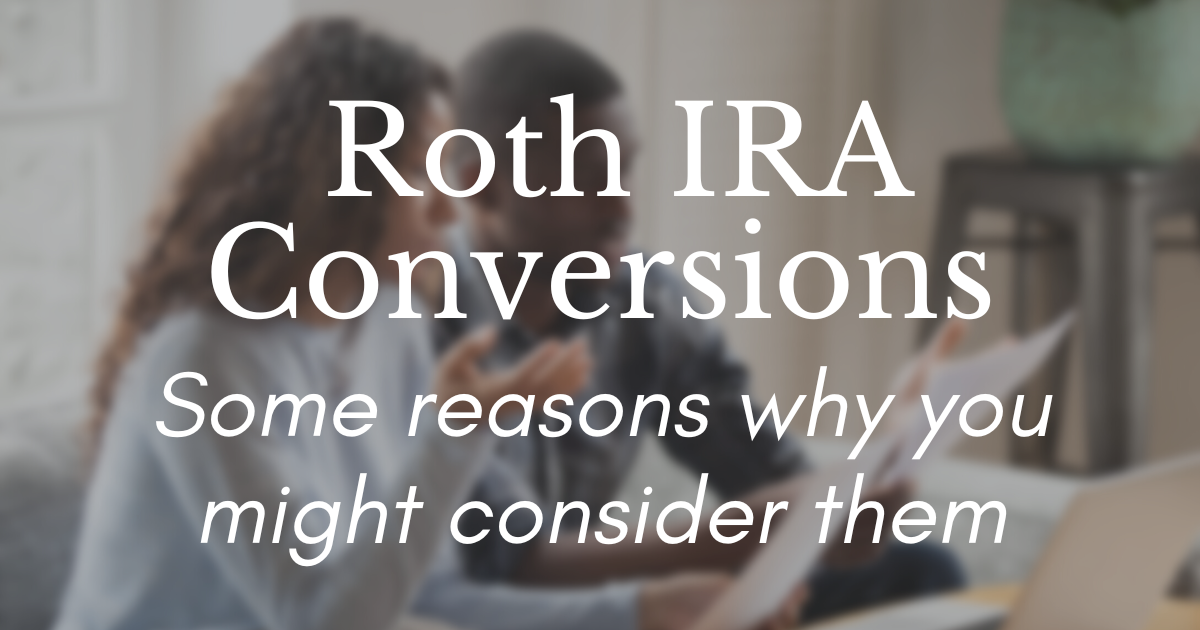What is a Roth IRA conversion?
A Roth IRA conversion is when one converts all or a portion of a traditional IRA to a Roth IRA. Withdrawals from Roth IRAs are not taxable, and you’re not forced to take distributions from a Roth IRA as is the case with a traditional IRA.
Why should you think about making one?
The short answer to this is if you think your tax rates will be higher in the future. Reasons for this include:
- Income tax rates, themselves, could go up. We put together a blog post showing the income tax brackets going back to the inception of the income tax, which shows that tax rates are as low as they have been since World War II.
- In addition, our national debt continues to rise, and some day it’ll have to be paid back—likely from income taxes.
- It could also be the result of your income being higher in the future. For example, you will be required to begin withdrawing from your traditional IRA at age 73, which may push your income higher.
Another reason to consider a Roth conversion is if the beneficiaries of your IRA(s) are likely to be in higher tax brackets than you, but it might not make sense to do a conversion if your sole beneficiary is a starving artist. Either way, a non–spouse beneficiary is now required to withdraw the entire balance of the inherited IRA within 10 years. As advisors, we are always preaching diversification. Converting dollars to Roth is another form of diversification—tax diversification.
How does a Roth conversion work?
It’s straightforward. You decide how much to convert and determine what asset(s) you’ll convert. In your traditional IRA, this could be a mutual fund, a stock, an ETF, a money market fund, or a combination of these. The amount you convert will be reported to you as income, and you’ll pay tax on the income when you file your taxes next year.
What are the drawbacks of a Roth conversion?
An obvious drawback is that you may not end up in a higher tax bracket. In that case, you might have been better off waiting to pay the taxes. Also, your heirs might be in a lower tax bracket than you were at the time you converted. Another drawback is that the Roth conversion could push you into a higher current income tax bracket, making this a decision to carefully review with your accountant before proceeding.
Unlike IRA contributions, which can be made until the tax filing deadline, Roth conversions must be completed by year end, so time is starting to become of the essence.
The information provided here is for general information only and should not be considered an individualized recommendation or personalized investment advice. The investment strategies mentioned here may not be suitable for everyone. Each investor needs to review an investment strategy for his or her own particular situation before making any investment decision.
Traditional IRA account owners have considerations to make before performing a Roth IRA conversion. These primarily include income tax consequences on the converted amount in the year of conversion, withdrawal limitations from a Roth IRA, and income limitations for future contributions to a Roth IRA. In addition, if you are required to take a required minimum distribution (RMD) in the year you convert, you must do so before converting to a Roth IRA.

